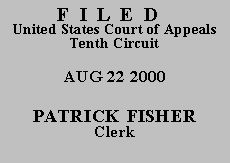

Presently incarcerated in a federal correctional institution in California, Mr. Juda alleges in his complaint that the defendants, in retaliation for his filing of a complaint criticizing the conditions of his detention, (1) conspired to prevent his prompt return to detention in California after an evidentiary hearing in New Mexico, and (2) conspired to prevent the return of his legal materials during his two month stay in the New Mexico center. Mr. Juda further alleged he was exposed to environmental tobacco smoke (ETS), and he was harassed by other inmates. He alleged that after complaining he was placed in segregation where he was permitted only three showers per week, one hour of exercise during his entire stay, and denial of hygiene supplies, comfortable bedding, office supplies, a "federal" law library, and adequate medical care. Finally, Mr. Juda complained that the food at the center was "dismal."
We have thoroughly reviewed Mr. Juda's brief and motions, the district court's order, and the entire record before us. The district court cogently addressed each of Mr. Juda's claims. We conclude that Mr. Juda has failed to make the necessary showing for substantially the same reasons set forth in the district court's order.
Accordingly, we AFFIRM the district court's dismissal of Mr. Juda's complaint, and we AFFIRM the district court's denial of Mr. Juda's subsequent motion. Finally, we deny Mr. Juda's application to proceed in forma pauperis, and remind him of his obligation to pay costs related to this appeal.
Entered for the Court,
Robert H. Henry
Circuit Judge
*. This order and judgment is not binding precedent, except under the doctrines of law of the case, res judicata, and collateral estoppel. The court generally disfavors the citation of orders and judgments; nevertheless, an order and judgment may be cited under the terms and conditions of 10th Cir. R. 36.3.
**. After examining the briefs and appellate record, this panel has determined unanimously that oral argument would not materially assist the determination of this appeal. See Fed. R. App. P. 34(a)(2); 10th Cir. R. 34.1(G). The case is, therefore, ordered submitted without oral argument.
1. We review the district court's § 1915(e) dismissal for an abuse of
discretion. See McWilliams v. Colorado, 121 F.3d 573, 574-75 (10th Cir. 1997).
2. We review the district court's Rule 12(b)(6) dismissal for failure to state a claim de novo. See Beck v. City of Muskogee Police Dep't, 195 F.3d 553, 556 (10th Cir. 1999).